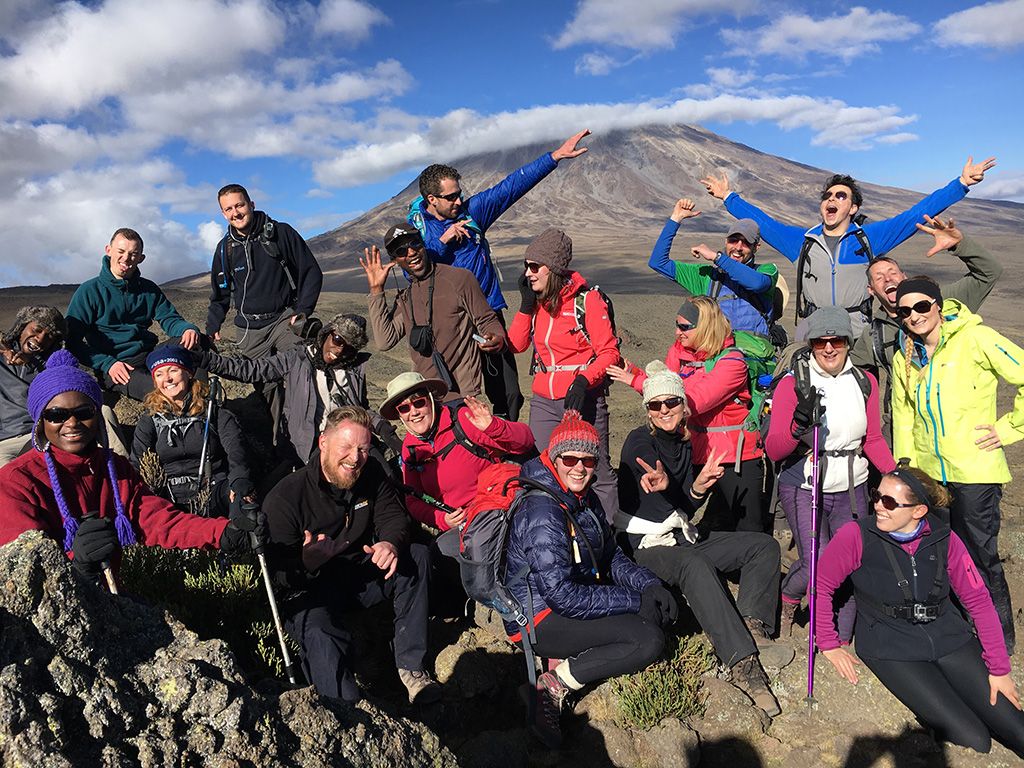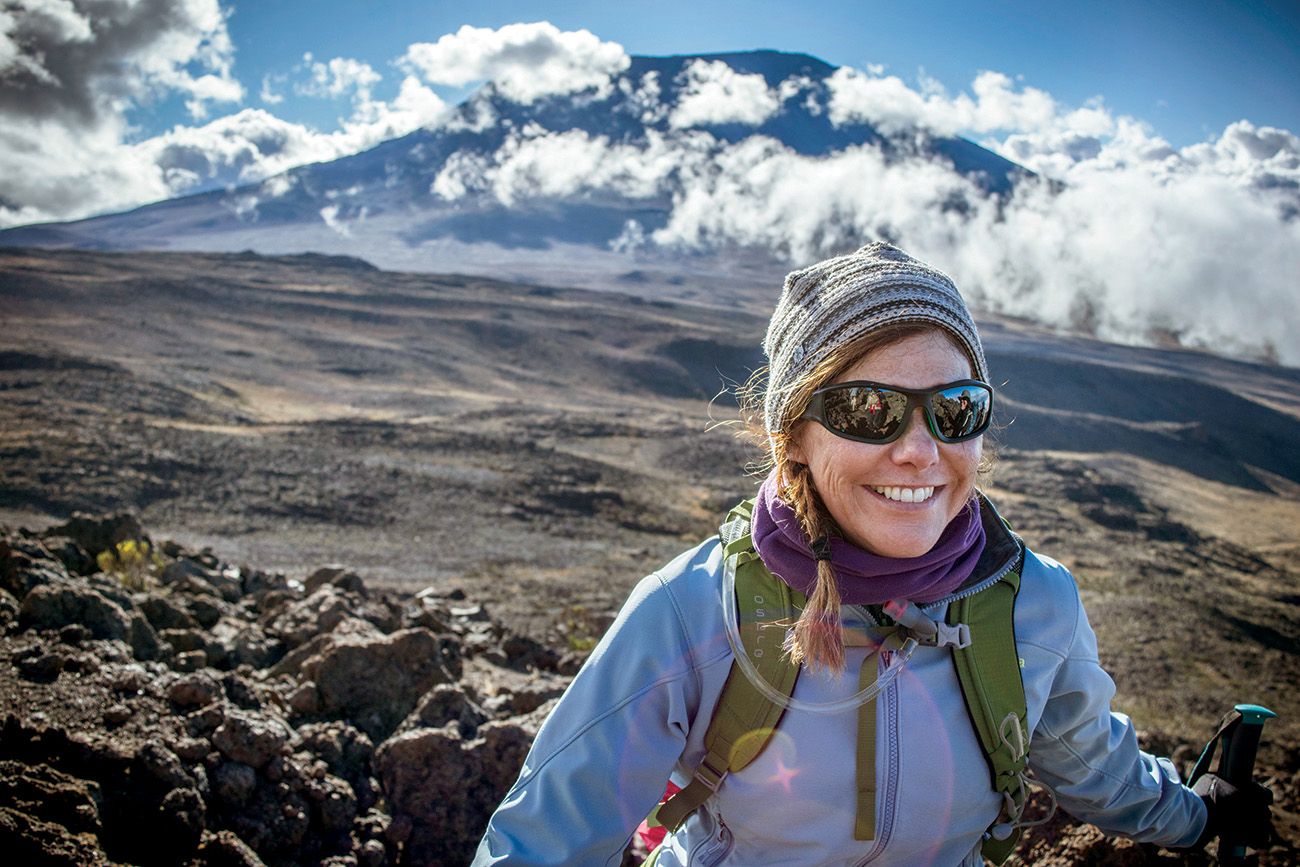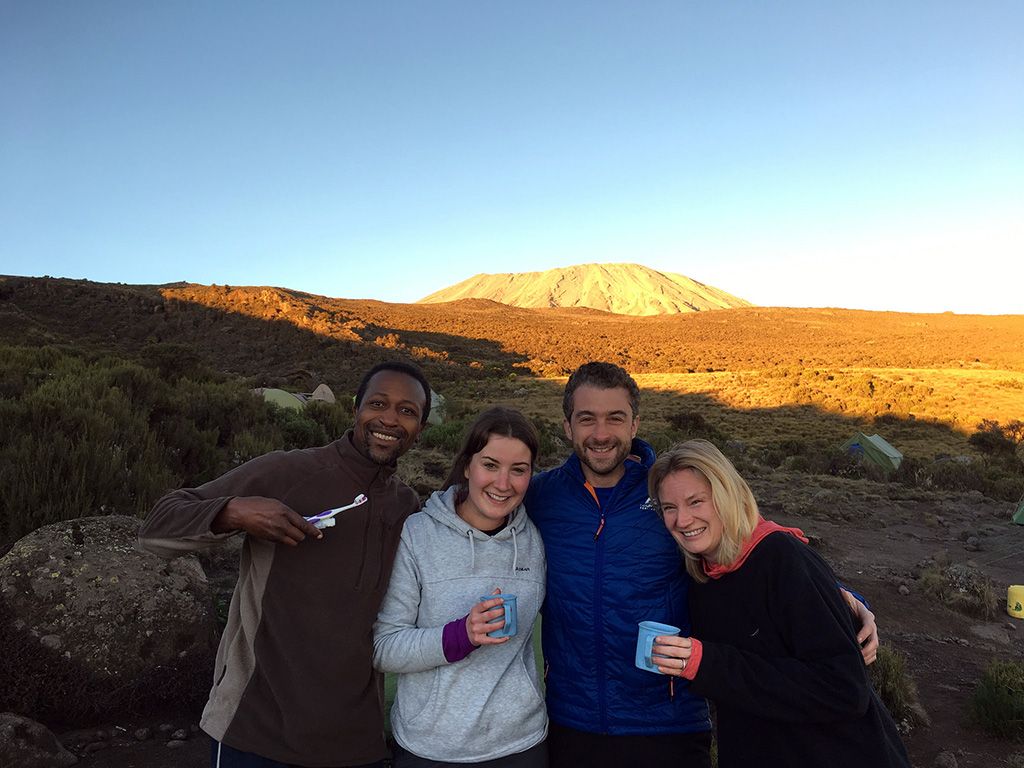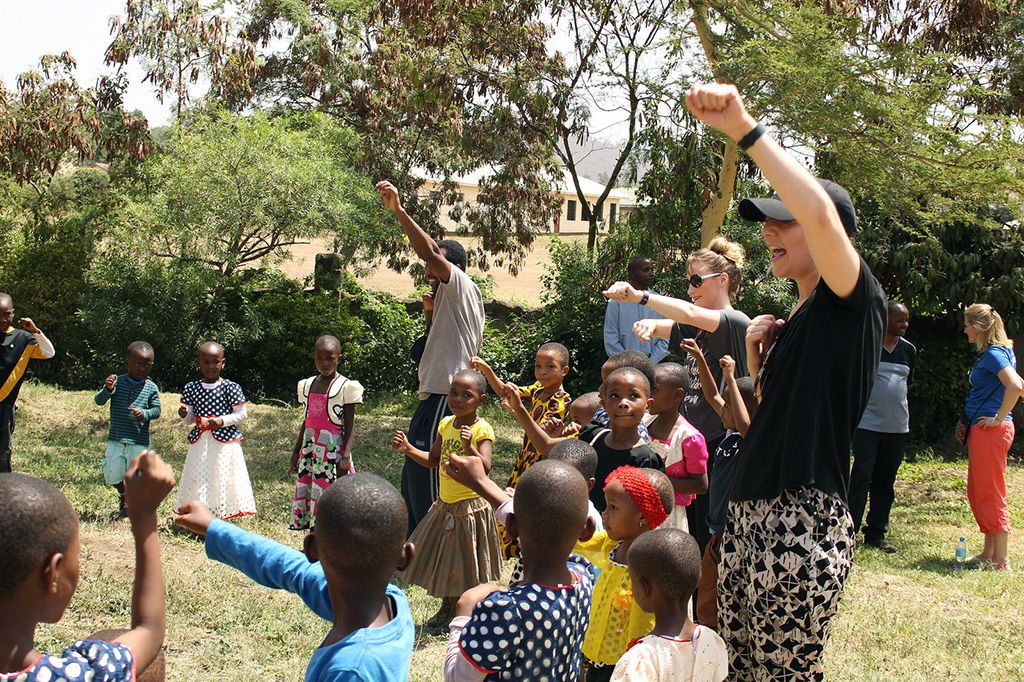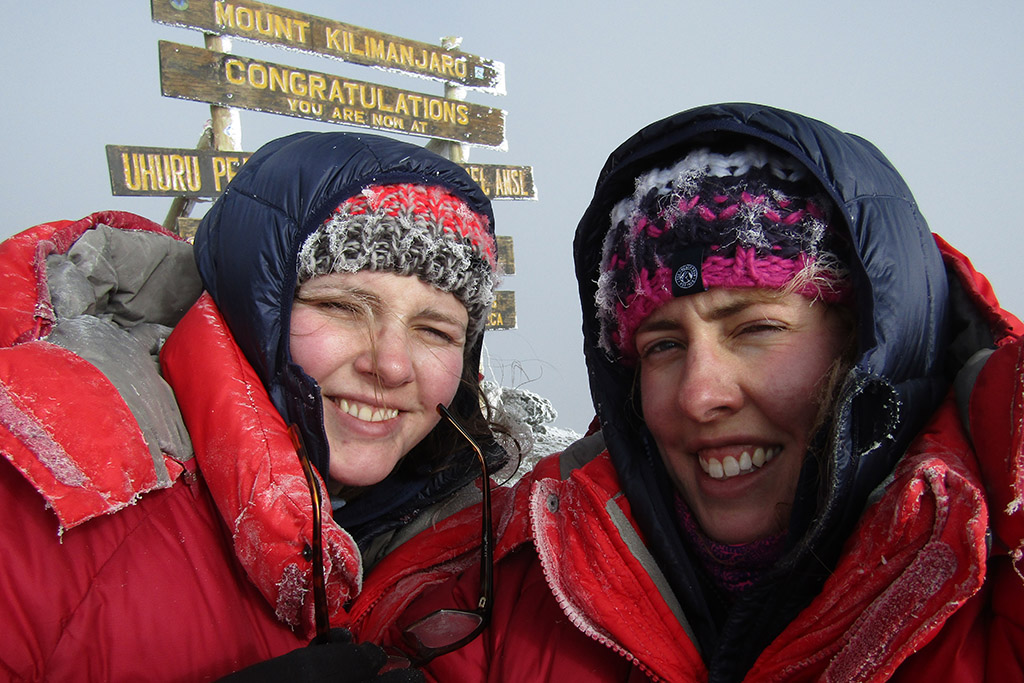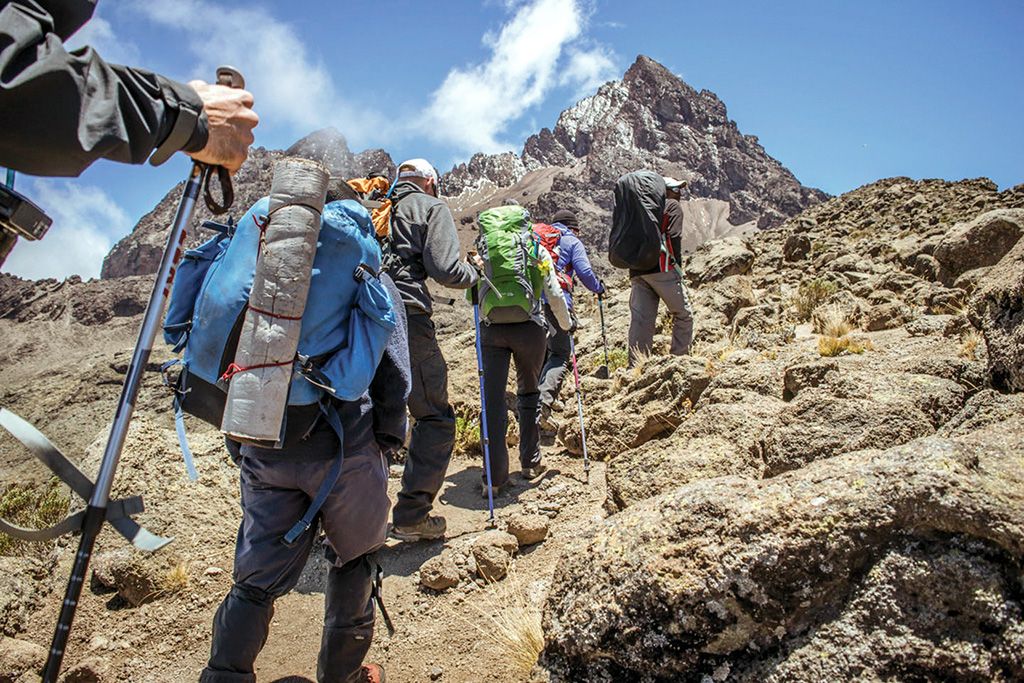Climbing Kilimanjaro for charity
Climbing Kilimanjaro is a lifelong dream for many. But finding the right organisation to plan your adventure can be a challenge in itself.
At Compassion UK, we know that climbing Kilimanjaro for charity is a great way of achieving a personal goal whilst bringing hope to children in poverty at the same time.
Each year Compassion enables a group of around 12-30 climbers to undertake the Kilimanjaro challenge, led by Ben (third left, back row), our experienced trip leader. Ben has successfully led more than 240 Kilimanjaro trekkers on charity mountain climbs.
Basically, climbing Kilimanjaro with Compassion UK brings your personal dream and charitable goals together under one big blue roof!
To help you while considering which charity to embark on your exciting climb with, we’d like to share what others are saying about their experience of climbing to the peak with Compassion.
Kilimanjaro charity trek
I can remember the excitement being palpable. It was the moment we had been waiting for. We were about to summit the world’s largest free-standing mountain. – Craig, reflecting on summiting Kilimanjaro in 2014
We’re offering 22 people the chance to share Craig’s experience. You could be at the Kilimanjaro summit, standing on the roof of Africa in only a few months’ time. Find out more about the Compassion Challenges trip happening 22 February – 8 March 2020 by visiting our Challenges website or emailing Andy, our Challenge Events Specialist.
It’s so hard to try and describe the trek because it really was the most incredible thing I have ever done. The scenery every day was like nothing I have ever seen before, I remember one morning sitting eating breakfast watching the sun rise over Kenya and just feeling so in awe of it all. – Rachel Johns, climbed Kilimanjaro in 2017
Kilimanjaro – the highest mountain in Africa – is waiting for you!
Standing at 5,895m (19,341 ft) tall, Mount Kilimanjaro, the highest mountain in Africa and the fourth highest of the world’s seven summits is a personal challenge for approximately 35,000-50,000 people every year.
If you sign up to venture to reach the summit of this UNESCO World Heritage Site in 2020, you’ll be rewarded with a landscape like no other. With its snowcapped peak and glaciers, standing on the roof of Africa is a once in a life time experience that is guaranteed to give you a photo opportunity like no other.
What’s more, climbing Kilimanjaro with Compassion will give you the chance to experience Tanzanian culture first-hand as you visit a Compassion project and meet the children whose lives are being changed by the charity.
5 reasons to do a Kilimanjaro charity trek with Compassion
1. Trip leaders you can trust
We run the challenge alongside our trusted partners, Rightfoot and the African Walking Company, who ensure the trek is arranged to the highest possible standard. Ben, your trip leader, is the Managing Director of Rightfoot, a member of the IMEC Partnership for Responsible Travel. The African Walking Company will also provide an experienced guide with a Red Cross Wilderness First Aid Responder Qualification and a KINAPA Chief Guide licence.
2. It’s an ethical and environmentally friendly choice
The African Walking Company are so passionate about the welfare of the porters they helped to found the Kilimanjaro Porter Assistance Project. They care deeply about looking after Kilimanjaro and therefore carry all rubbish off the mountain and even pay their staff to collect the rubbish of more careless companies.
Climbing Kilimanjaro with Compassion UK was a life-changing experience. I was blown away by the professionalism of the mountain guides. – Simon Di Meo, climbed Kilimanjaro in 2017
3. You’ll become part of a close community
During every climb we organise, a great sense of community develops amongst the group as trekkers support each other through the highs and lows of the adventure. Climbing Kilimanjaro for charity also gives you time away from everyday life and the chance to reflect on the beauty of God’s creation.
Since taking on Kilimanjaro together, we have definitely developed a strong bond. We are no longer just friends but family. Ayoola, climbed Kilimanjaro in 2017
4. You’ll see Compassion’s charity work in action
Because you’re climbing Kilimanjaro for charity, you’ll get a unique insight into how we’re empowering children in poverty through child sponsors.
During your trip, you’ll get the opportunity to take part in a Compassion project day. An action-packed, high energy day, you’ll observe the vital educational lessons being taught, enjoy cultural song and dance performances and even serve lunch.
The project day was by far my favourite day of the whole trip- but probably the day I had given little thought or preparation to. However, I don’t think anything could have prepared me for the overwhelming welcome we received. The highlight was getting to meet Devota, my sister’s sponsor child. The memories that I have will last a lifetime. Anna Forster, climbed Kilimanjaro in 2017
5. Our fundraising goals are realistic
We try and keep our fundraising support as simple as possible. We want to help find sponsors for as many children living in poverty as possible. All we ask you to do is tell people about Compassion and ask if they too will become a sponsor and release a child from poverty. We set every team member a target to find four new sponsors of children or fundraise £2,000 – or any combination of the two.
We provide our climbers with excellent fundraising support including your own personalised fundraising page on our Compassion Challenges website, a sports top and lots of encouragement!
Climb Kilimanjaro for charity in 2020
This year, why not go for it and take the opportunity to adventure with a purpose. Our Challenges Specialist, Andy, would love to share more with you about our upcoming trip in January 2020. Alternatively, you can find out more about climbing Kilimanjaro for charity on our Compassion Challenges site.
Top tips on how to climb Mount Kilimanjaro for charity
Make no mistake, reaching the iconic sign of Uhuru Peak (the highest peak on Kilimanjaro) is a grueling and physically demanding challenge that will test all who attempt it. However, with the right approach, you can succeed.
| Top tips for climbing Kilimanjaro | |
|---|---|
| What’s the best time to climb Kilimanjaro? | The best time to climb Kilimanjaro is between January-March and June-October. While you’re more likely to encounter snow between January-March, June-October normally means your summit is slightly milder. |
| How long does it take to climb Kilimanjaro | Climbing Kilimanjaro takes between five-nine days. Compassion’s Kilimanjaro trek is six days long. |
| What’s the currency in Tanzania and Kenya? | The Tanzanian Shilling is the official currency of Tanzania and the Kenyan Shilling is the official currency of Kenya. |
| What’s the time difference between the UK and Tanzania? | Tanzania and Kenya are only three hours ahead of the UK so jetlag shouldn’t be a problem. |
| What equipment do I need to climb Kilimanjaro? | You’ll experience a wide range of temperatures so we recommend having thin clothing layers available including thermal underwear, fleece, jacket, waterproofs and headwear. |
| Do I need vaccinations to climb Kilimanjaro? | All climbers should make an appointment with their local health centre to check they have been suitably vaccinated for travel to Tanzania. You’ll need a Yellow Fever certificate to gain entry into Tanzania and Kenya. |
| How much does it cost to climb Kilimanjaro? | Costs vary per organisation. To climb Kilimanjaro with Compassion costs £3,075 which can be paid in monthly instalments. More details can be found on our Compassion Challenges website> |
Will I suffer from high altitude sickness climbing Kilimanjaro?
It’s important to be aware of High Altitude Sickness and the three conditions that climbers can experience when ascending altitudes higher than 2,500 m. Illness at altitude occurs because of the change in atmospheric pressure as you ascend. Not everyone will develop symptoms and there’s no knowing how altitude will affect you, though people with cardiac or pulmonary disease should consult their doctor before travel.
Kilimanjaro routes: how do I choose?
There are seven established Kilimanjaro routes to Kibo or Uhuru peak. The Rongai route has been carefully selected as the chosen route for Compassion Challenges.
Officially known as Loitokitok or Nalemuru, the Rongai route as it’s more commonly known is the only trail to approach Kibo from the north near the Kenya boarder. It’s more remote than some other routes and experiences significantly less traffic from other trekkers. According to National Park statistics, as little as 10% of the numbers undertaking the more commonly used Marangu and Machame routes.
How to train for your Kilimanjaro trek
Training for Kilimanjaro can seem like a daunting prospect, but Andy and Ben will be on hand to offer you tips and advice.
The most effective preparation directly mirrors what you’ll be doing on the mountain: walking. Take any opportunity you can find to walk – ideally over long and increasing distances. This will help condition you to daily trekking. It’s highly advisable to walk in the very same walking boots that you intend to wear on the challenge.
Before you climb Kilimanjaro, it’s also recommended that you undertake a mixture of the following:
- Cardiovascular or Aerobic Exercise. These terms describe exercise of moderate intensity performed over a long duration. The benefits are wide-ranging, but most notably include strengthening and improved efficiency of your heart and lungs.
- Strength, Resistance, or Anaerobic Exercise. These terms all describe exercise of a higher intensity performed over a very short duration. Benefits include the strengtheningand conditioning of specific muscles or muscle groups.
